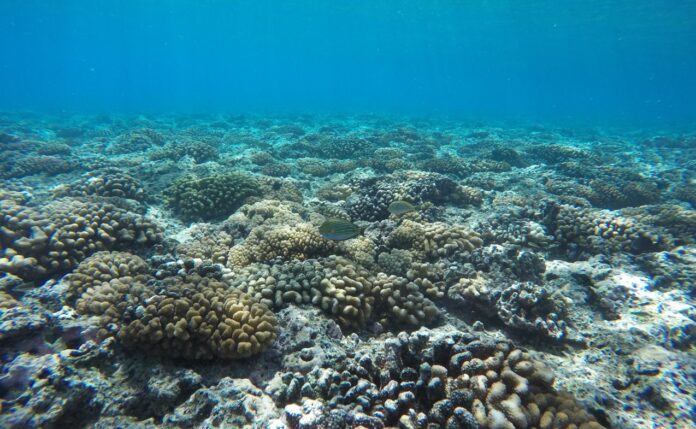Coral reefs are one of the most productive and biodiverse ecosystems on the planet, but they are also one of the most endangered and changing quickly.
How can we strengthen the resilience of the world’s coral reefs, which are under threat from a variety of pressures, including huge bleaching events connected to climate change?
Restoring populations of reef fish that consume algae, such as parrotfish, is one tactic that some researchers, resource managers, and environmentalists support. This concept, known as fish-mediated resilience, holds that conserving the fish that control algae results in healthier corals and can aid in the regeneration of troubled reefs.
However, the latest research that examined historical data from 57 coral reefs in the French Polynesian island of Mo’orea questions this accepted theory of coral reef ecology.
According to University of Michigan marine biologist and study co-senior author Jacob Allgeier, the research, published today in the journal Nature Ecology & Evolution, offers convincing new evidence that fish don’t control coral over time. Former U-M postdoctoral researcher Timothy Cline is the other author.
The U-M Department of Ecology and Evolutionary Biology assistant professor Allgeier said, “This paper very well might radically change how we think about the conservation of coral reefs.”
For years, individuals have argued that we can restore coral through fisheries management, but this research on Mo’orea reefs demonstrates that this is unlikely to work—there are far too many other factors at play.
“There is functionally no measurable effect of fishes on coral cover over time.”
To prevent algae overgrowth and reef damage, supporters of fish-mediated coral reef resilience have called for bans on fishing for algae-eating reef fish.
According to the authors of the new study, such well-intentioned but poor management practices could have a significant impact on the millions of people who rely on coral-reef fisheries for their livelihood.
According to the researchers, it makes more sense to support policies that promote the protection of multiple ecosystems and coral reef types at various stages of degradation.
“We do need to manage fisheries in these ecosystems, but instead of things like wholesale restrictions on parrotfish, we should consider management efforts that promote sustainable harvest throughout the food web to disperse the impacts of fishing,” Allgeier added.
Coral reefs are one of the most productive and biodiverse ecosystems on the planet, but they are also one of the most endangered and changing quickly.
Predatory species, nutrient pollution, acidification of the oceans, overfishing, sedimentation, and coral bleaching, which is brought on by persistently warmer-than-average sea surface temperatures, are some of the threats to coral reefs.
As the climate warms, mass bleaching events become longer and more common, hitting reefs that are fully protected from all human impacts other than climate change, according to Allgeier.
The Mo’orea Coral Reef Ecosystem LTER (supported by the U.S. National Science Foundation) and the Centre de Recherches Insulaires et Observatoire de l’Environnement participated in the new study, which involved a series of statistical analysis of coral reef data acquired between 2006 and 2017.
The datasets for Mo’orea’s coral reefs include some of the longest-running records of continuous observations of fish populations and coral reef algae growth.
Macroalgae, also referred to as seaweed, compete with corals for space on the seafloor and, if they become too dense, can suffocate them. When corals are debilitated due to a bleaching event or another disturbance, macroalgae frequently invade the area and supplant them.
During the study’s data collection period of 2006 to 2017, Mo’orea coral reefs were seriously disrupted by an epidemic of the coral-eating crown-of-thorns starfish and a direct hit from Cyclone Oli in winter 2010.
The two occurrences gave Allgeier and Cline the chance to analyze the Mo’orea reefs’ decline and subsequent recovery as well as to determine the contributing causes.
They used mathematical models to test the idea that the rate at which corals recovered was related to the species diversity, biomass, and richness of the fish community.
“We found no evidence,” Cline remarked, “that the substantial variation in fish community biomass and diversity had any influence on how sites recovered from disturbances.”
“Instead,” Cline added, “we suggest additional location-specific attributes are critical in recovery, and the fish community is just one component of a suite of variables that must be considered.”
Source: 10.1038/s41559-022-01882-0
Image Credit: Getty
You were reading: New Evidence Fish Don’t Regulate Coral Over Time
